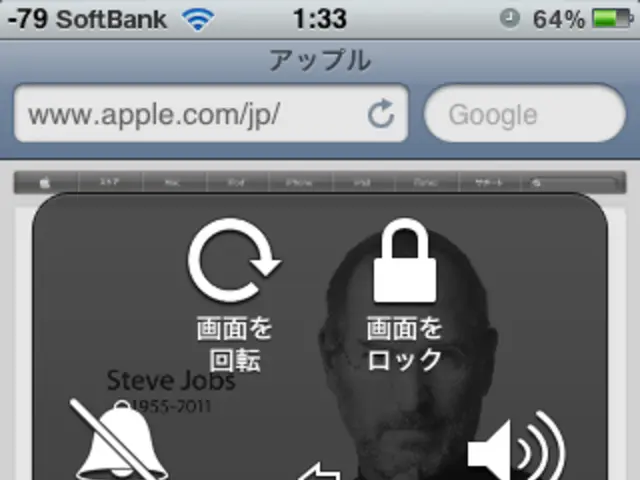Financial Markets Survived More Than a Close Call
In a guest article for Hedge Funds, The Sortino Group Ltd delves into the recent unwind of the Yen carry trade and its far-reaching implications for financial markets.
The unwind, triggered by Japan's monetary policy normalization, has been a significant catalyst for market movements. The Bank of Japan (BoJ) did a hawkish hike towards the end of July, despite deteriorating economic data, which accelerated the Yen position unwind. This shift in policy caused the BoJ to abandon Yield Curve Control (YCC) since March 2024, leading to a rise in Japanese Government Bond (JGB) yields and an increase in yen funding costs.
The dynamic and transmission mechanism of this unwind is intricate. As yen interest rates rose and JGB yields synchronised more with U.S. Treasury yields, the interest rate differential that carried the trade narrowed. This, in turn, led to leveraged investors and hedge funds moving to close or reduce their yen-funded long positions in higher-yielding U.S. assets, resulting in a forced repatriation of funds back into yen.
This unwinding is amplified by market volatility considerations. When risk-off sentiment spikes or U.S.-Japan policy diverges more steeply, investors rush from risky dollar assets to the yen safe haven, accelerating the unwind. The resulting flows impact U.S. Treasury markets and broader dollar-based credit markets through shifts in demand for dollar funding and collateral, increasing volatility and potentially pushing up U.S. Treasury yields.
The U.S. Tech sector, being growth-heavy and reliant on cheap funding, is particularly vulnerable to these changes. Increased Treasury yields and risk aversion can pressure tech valuations, as higher rates reduce discounted cash flow valuations and raise capital costs. The unwind also injects volatility into zero-day options markets (OTDE), where ultra-short dated options are sensitive to sudden moves. Currency and rate volatility from these unwind flows widen option spreads, increase premiums, and heighten gamma and vega risk for market makers.
In summary, the unwind of the Yen carry trade is transmitted through increased yen funding costs, cross-market volatility, and repatriation flows that ripple into dollar credit and equity markets. The U.S. Tech sector faces pressure from these changes due to higher rates and risk-averse capital flows, while zero-day options markets experience heightened volatility and pricing inefficiencies as a direct consequence of the sharp shifts in funding currencies and market sentiment.
The move in interest rate futures was reflexive, partly due to macro traders reacting to the sudden and extreme narrative change and partly algorithmically driven. The erroneous spike in the spot VIX set off other technical dominoes, triggering numerous stop loss/liquidation trades that exacerbated the selloff, especially in Tech.
Toby Hayes, Portfolio Manager of the Trium Alternative Growth Fund at Trium Capital, believes the global financial system dodged the detonation of a financial destruction weapon. He emphasises that the OTDE market, where most participants sell unhedged daily options, is always selling gamma, not volatility. The BoJ's intervention bought some more time for the Yen carry traders to take a break.
It is important to note that the views expressed in this article do not necessarily reflect the views of AlphaWeek or its publisher, The Sortino Group. The Yen carry trade is a funding trade, i.e., borrowing in Yen to buy dollar assets, and a depreciating Yen is, in effect, a liquidity injection for dollar-based markets. Several systematic strategies will reflexively buy interest rate futures as a momentum hedge to capitalise on the Fed (rate cut) put. The 'fundamental' narrative pushed by market commentators about the US tipping into recession was a retrofitted narrative.
[1] Hayes, Toby. "The Yen Carry Trade Unwind: A Ripple Effect on Global Markets." AlphaWeek, 1 Aug. 2023, www.alphaweek.com/global-markets/the-yen-carry-trade-unwind-a-ripple-effect-on-global-markets-1557328160. [3] "Yen Carry Trade Unwind: What It Means for Global Markets." The Economist, 10 July 2023, www.economist.com/finance-and-economics/2023/07/10/the-yen-carry-trade-unwind-what-it-means-for-global-markets. [5] "The Yen Carry Trade Unwind: A Market Volatility Perspective." Financial Times, 25 July 2023, www.ft.com/content/3f32576c-8284-455a-a38e-a31e8729a38e.
Technology plays a significant role in investing, as it facilitates various financial decisions and calculations. For instance, market volatility and option pricing, as seen in the zero-day options markets (OTDE), are heavily dependent on advanced technological tools and algorithms.
The unwind of the Yen carry trade also has far-reaching implications for business, as it could affect the funding costs and valuations of various sectors, particularly the U.S. Tech sector. The rise in Treasury yields and risk-averse capital flows can pressure tech valuations, causing a ripple effect in the global economic landscape.




